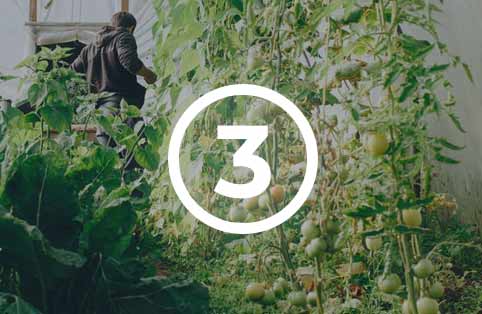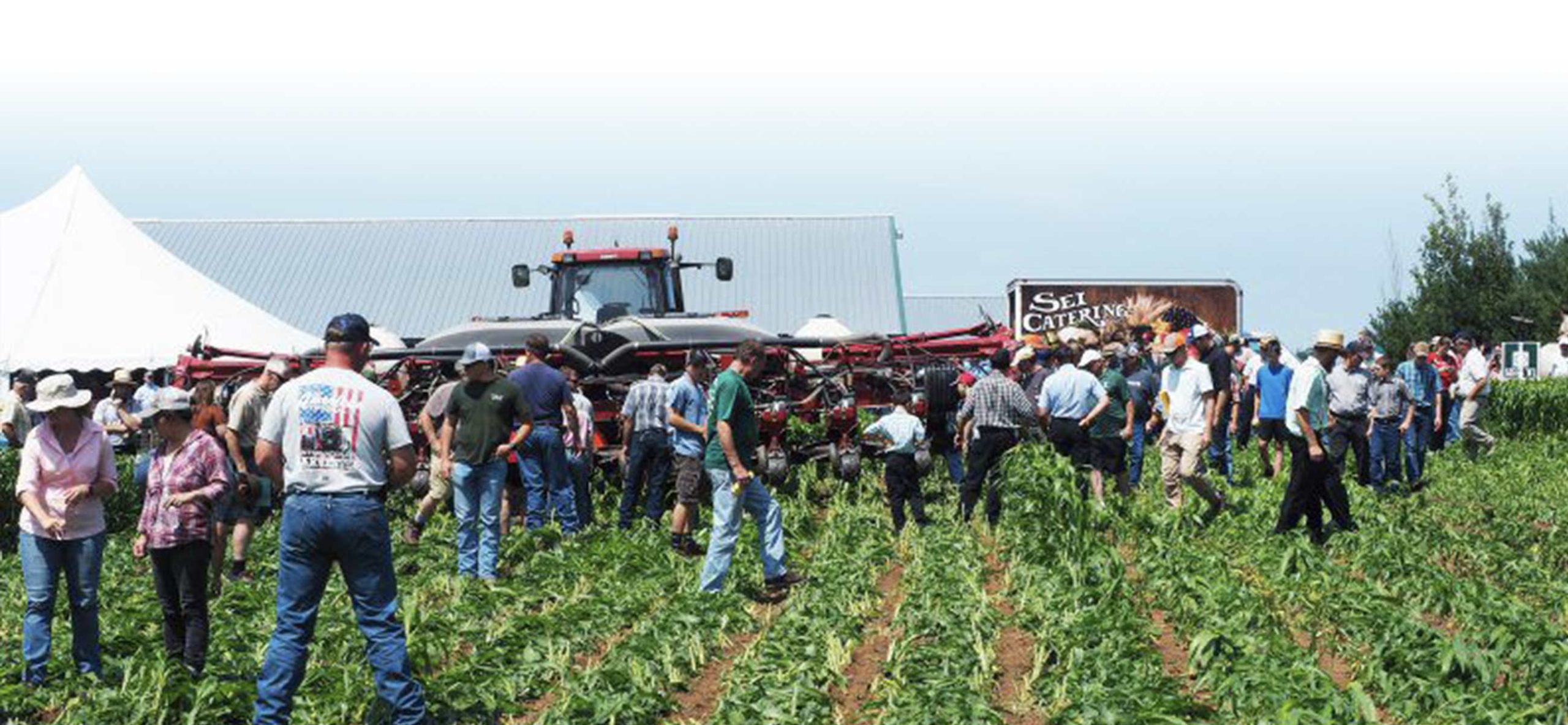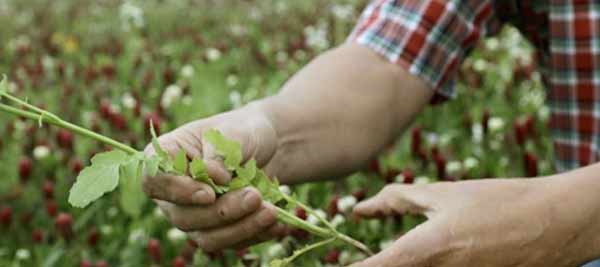FEATURED FARMER:
RICK CLARK
The story of Rick’s transition from chemical dependency to regenerative practices has propelled demand from other farmers to learn his strategies and garnered national attention.
His farm runs on a five crop system with corn, soybeans, wheat, alfalfa and regen.
Rick attributes his success to his father who still helps on the farm, “He’s my mentor, he’s taught me how to think, he’s taught me how to take a risk and figure out what the ramifications are going to be if you try something new.”
At a time when farmers are struggling to make ends meet, burdened and tied to the demands of conventional farming, the skills his father taught him have been the driving force behind his vision and dedication to results.
Through experimentation, failure, learning, and resilience, Rick’s 10+ year journey transitioning his land has made it possible for hundreds of farmers to revitalize their land and livelihood using his methodology.
“It really stems from consumer behavior. In 2014, a major vendor wanted to remove all GMO inputs in their product which stemmed from the demand for non-GMO food from consumers. It made me start thinking differently about how I was doing things and how I could pivot to meet consumer demand.”
How does he do it?
“I have two core tenants I follow religiously and they are to build two things: soil health and diversity.”
Everything Rick does is centered on these two pillars. He uses non-GMO seeds, no-till farming, crop rotation, and cover crop diversity to regenerate soils and drive a profitable business.
After Rick graduated from Purdue University with a degree in agriculture and economics, he took an unexpected path when he chose to leave the family farm to pursue a career in finance after a friend told him about the opportunity. He packed his bags and worked in the heart of Chicago’s financial district for four years learning the ins and outs of the market and trading municipal bonds.
3 core elements to making a successful transition to starting cover crops:

Keep it simple at the beginning

Start easy and do not get in over your head

Do everything possible to ensure the farmer has success with the first attempt
To get in touch with Rick and learn more about his consulting service you can email him directly at [email protected] or find him on social media:



